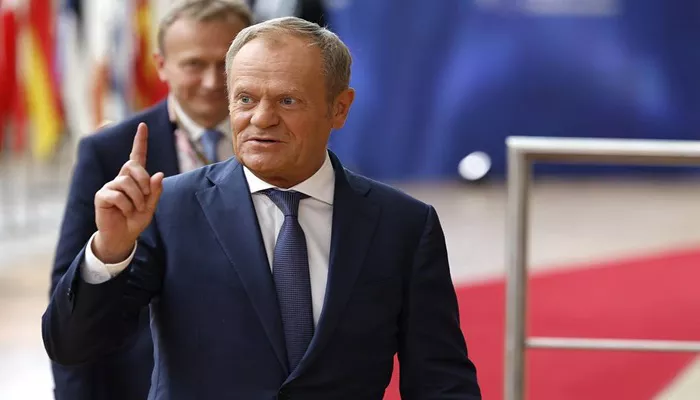Poland’s Prime Minister Warns Against Expelling Hungary from Schengen Area.
Polish Prime Minister Donald Tusk urged European leaders to exercise caution regarding calls for Hungary’s removal from the Schengen area, warning that such a move could trigger Hungary’s exit from the European Union. Tusk made these comments during a press conference on August 9.
Hungary’s recent decision to unilaterally relax visa requirements for citizens of Russia and Belarus has raised security concerns among several European politicians. This change has led to complaints from officials in other Schengen member states about potential risks.
Tusk emphasized that excluding Hungary from Schengen could initiate its departure from the EU. “We should be careful about excluding countries from the EU,” he said.
Changes in Hungary’s Visa Policies
Hungary introduced a new visa program in July, allowing citizens from six additional countries, including Russia and Belarus, to apply for guest worker visas. This program now includes 12 countries, as Serbia and Ukraine were already part of it. The new visas offer extended stays of up to five years, family sponsorship, and expedited processing within 21 days, without requiring special qualifications. After three years, visa holders may also apply for permanent residency.
Hungarian Foreign Minister Peter Szijjarto defended the policy, stating that Russian and Belarusian citizens still need a visa to enter Hungary and the Schengen area.
Concerns from EU Officials
The decision has drawn sharp criticism from EU officials and Members of the European Parliament (MEPs). Approximately 70 MEPs, led by Czech MEP Danuse Nerudova and Lithuanian MEP Petras Austrevicius, sent a letter to European Commission President Ursula von der Leyen, demanding Hungary’s suspension from Schengen. They called for immediate action to address the security risks stemming from Hungary’s relaxed visa rules.
EU Commissioner for Home Affairs Ylva Johansson responded by stressing the importance of maintaining a “high level of mutual trust” among Schengen countries. She highlighted the need for rigorous scrutiny of Russian nationals who might pose security threats, given the ongoing conflict in Ukraine. Johansson noted that Hungary’s policy could undermine the EU’s efforts to impose restrictions on Russia.
The letter also referenced the EU’s suspension of its visa agreement with Russia in September 2022 and the introduction of new guidelines for processing visa applications from Russian nationals.
Hungary’s Defense and Broader Implications
In 2018, Hungary faced similar accusations when it allowed Russia to set up the International Investment Bank in Budapest, granting its employees diplomatic immunity. In response to the current situation, Szijjarto claimed that the criticism from Baltic nations is misleading. He stated that Russian and Belarusian citizens still require visas to enter Hungary and must follow official procedures to obtain residence permits.
Szijjarto criticized Baltic leaders for spreading misinformation and emphasized that Hungary’s actions comply with EU regulations regarding visa issuance.
Despite Hungary’s defense, European People’s Party chairman Manfred Weber called for decisive action against Hungary and suggested discussing the matter at the upcoming European leaders’ summit in October.
Tusk reiterated the need for Europe to remain united and not isolate Hungary. He pointed out that other EU nations also issue visas to citizens from Russia and Belarus, noting that Hungary is not alone in this regard. “A country’s suspension from the Schengen Area is the first step to its suspension from the EU. I would be careful about statements on suspending countries from the EU,” Tusk concluded.
The Schengen area includes most EU member countries. Among the EU-27, only Cyprus and Ireland are not part of Schengen, while non-EU nations Iceland, Liechtenstein, Norway, and Switzerland are included in the zone.


